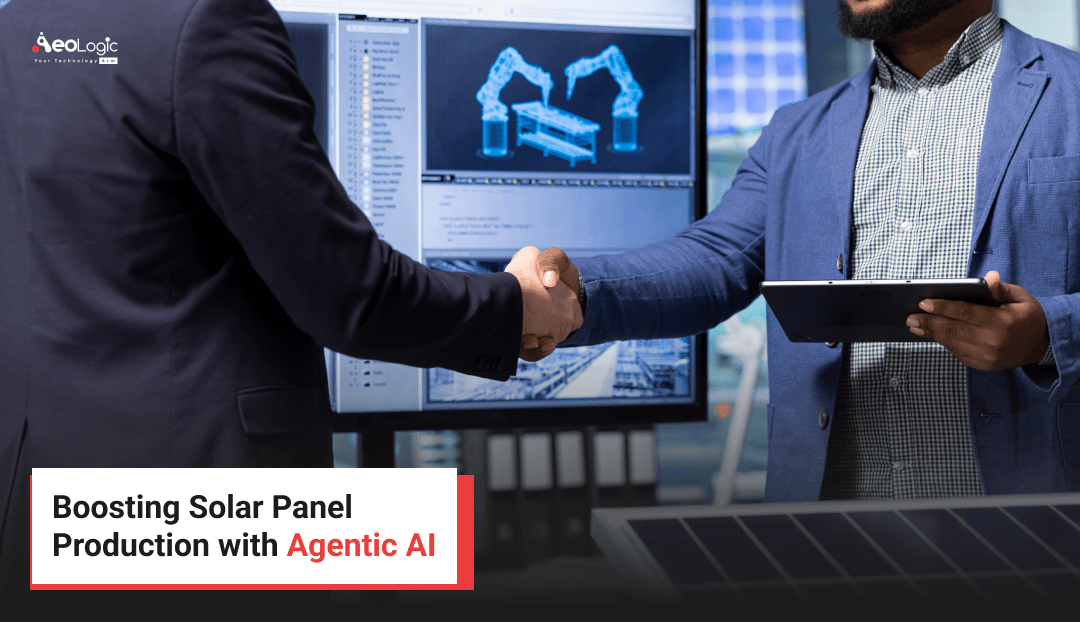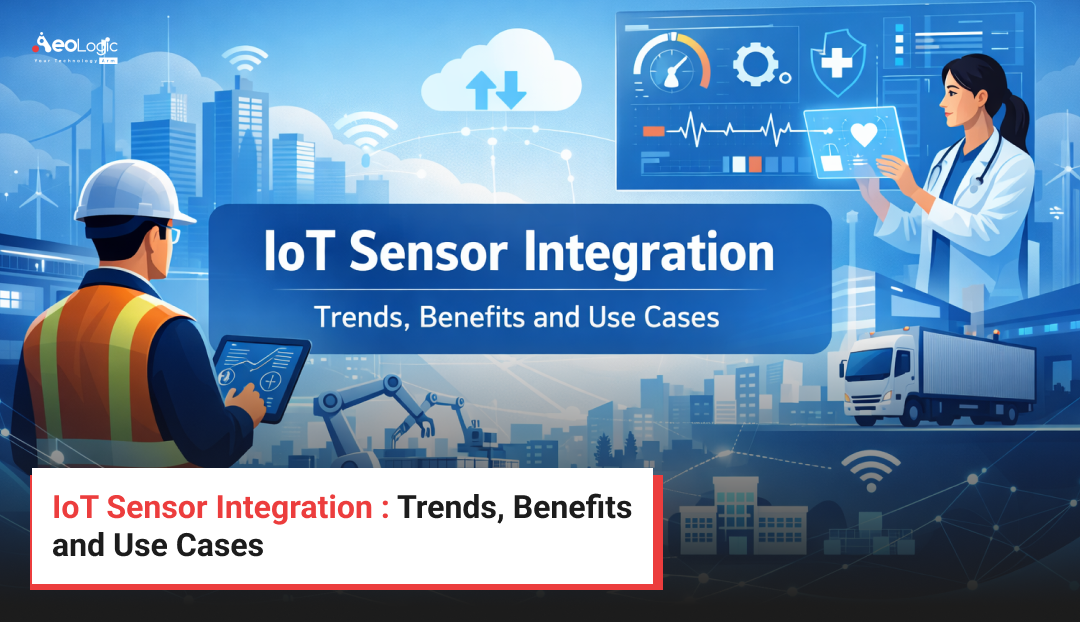The world is transitioning toward a renewable future and solar is at the forefront. Demand for solar panels is soaring as growth numbers approach 20% per year through 2030. Challenges push manufacturers to increase output and task them with boosting capacity without reducing quality or raising costs. Enter agentic AI, a game-changer for solar manufacturing and solar panel efficiency. Automation typically involves a predetermined scripted series to a process, while agentic AI is dynamic, autonomous and deploying a decision-ready artificial intelligence solution that optimizes actions at the moment of use.
Agentic AI solutions are not just about getting tasks done, they think, learn and create. An example of this capacity can be envisioned as manufacturing plants operating like Uber. It can take millions of data points, and millions of devices and rapidly allocate and deploy efficient actions as they pertain to each other in real-time. Agentic AI will reconstitute manufacturing facilities into something like a highly sophisticated highly-functional factory.
This blog post investigates the role of solar manufacturing artificial intelligence, and agentic artificial intelligence, in transforming panel production. We will explore what agentic artificial intelligence is, how these systems can function in a real-world capacity, some successes that have been achieved, the future of this system, and the challenges presented. By the further of this post, you will recognize the necessity of this technology for addressing the world renewable energy demands and domestic and commercial competitive edge.
What exactly is Agentic AI?
A factory in which the machines do not simply do the same job thousands of times, but actually react, recognize and resolve, and are goal-oriented. That lifecycle of agentic AI as a concept. Traditional AI often relies on a set of rules or the guidance of a human, but agentic AI does not. Agentic AI is live and is autonomous, in that it will act on real-time data and pursue a discernable
Agentic AI stands out primarily for three reasons: autonomy, adaptability, and goal-oriented. Autonomy means agentic AI will produce an outcome without being constantly supervised, adaptability means agentic AI can acquire learning from new data and change or modify a final output, and goal-oriented means agentic AI is always focused on producing an outcome regardless of context. In this example of solar manufacturing where each day can be subject to changing conditions (environmental temperature, quality of materials) , agentic AI presents a unique opportunity. Think about it – agentic
AI is capable of noticing a concerning misalignment in the modulation of a solar cell, then it has the ability to change the alignment of its robotic arms to correct the misalignment, immediately. This type of dexterity is beyond the capabilities present in legacy systems. A rule-based AI would, given the same challenge, stop the production line and wait for a human to correct the defect, but agentic AI would move forward as it excels in environments that require consistency.
The Impact of Agentic AI in Solar Panel Manufacturing-
Solar panel manufacturing is a complex interaction of engineering, science, and logistics. Each step in the process—cutting silicon wafers, assembling photovoltaic cells, etc.—utilizes precision and speed. Agentic AI solutions address three key areas of the process: production line automation, quality control, and predictive maintenance.
1. Optimising Production Lines
Picture a solar panel assembly line in action; robotic arms are soldering cells, conveyors are transporting panels, and workers are monitoring the flow of the panels. To make this situation run smoothly, agentic AI enters as the maestro, leveraging sensor data—temperature, speed, material thickness, etc.—to optimize every move. When a silicon wafer slightly moves, the agentic AI adjusts the wafer, in the moment, saving the waste. One manufacturer indicated a 15 per cent increase in throughput after they added agentic AI because it adapted to certain variables—humans do not typically figure out how humidity could affect curing of the adhesive, for example.
2. Quality Control and Defect Detection
Now, quality is at the top of a solar panel product specification hierarchy. A small defect such as a crack creates a dramatic reduction in efficiency. Agentic AI and its combination of computer vision is like an eagle spotting defects that go unnoticed by human vision. It is inspecting the panel in close proximity in real-time for micro-cracks, dirt, blemishes of any kind, or crooked busbars. I also love that this machine is not just pointing and yelling, but is actively deciding on an outcome. Instead of saying out loud, “this is defective.”, it re-routes the panel if it can be repaired or simply exits the process if a repair is not feasible; this avoids generating further waste and cost.
3. Predictive Maintenance
We have all had machines break down at the worst possible time, and when that happens in a solar factory, it can have hours of downtime and a large cost. Agentic AI is like having a crystal ball. Agentic AI observes the sensor data for vibration, excess heating, and wear, to predict when a machine is likely to fail. One article I read mentioned the AI noticing early on the friction on a motor, allowing maintenance to be called in before the motor failed. This helped reduce downtime by 30% and kept production running.
Having an intelligent AI telling you when to have a mechanic look at your machine is like having a mechanic who never goes home, and for that reason, it is priceless in the world of solar manufacturing
Improving Efficiency Via Agentic AI Applications
Agentic AIs are not only effective for specific tasks, they are a game-changer for the entire operation. They optimize processes, optimally utilize energy, and seamlessly coordinate the entire supply chain.
1. Process Optimization
The manufacture of solar panels involves juggling processes. Multiple processes can be involved in creating panels: temperatures for melting silicon, pressures for lamination, and times for curing. Agentic AI behaves like a ringmaster, altering aspects of the solar manufacturing process on the spot, through direct monitoring via IoT sensors. If the laminator is operating too hot and wasting energy, Agentic AI will dial back the temperature while using the right amount of energy to get a quality product. I read about a plant that increased its output by 10-15% with these simple process changes. These are the innovative applications of solar manufacturing AI.
2. Energy Efficiency in Manufacturing
The manufacture of panels is very energy-intensive, particularly at the stage of silicon refinement. Agentic AI can optimize when these heavy loads will occur during the day, possibly allowing them to be used on an off-peak hour. Additionally, agentic AI can actively monitor energy use, fixing inefficiencies, my favourite of which is when I learned of systems running much longer than necessary to cool down equipment. I read about a factory in China that reduced its energy use by 12% this way. It proves that energy-efficient manufacturing can be an option for sustainable energy, and it makes my heart feel warm just to think of it being possible.
3. Supply Chain Integration
A factory is only as big as its supplies. When the factory turns to Agentic AI in this instance, it keeps tabs on the market trends, shipping delays, and production needs in order to time, and sometimes even suppliers, to order materials just in time, like a trusty browser-based negotiator kept on speed dial to fight delays. Manufacturers must be glad that Agentic AI is available to return to the series of polysilicon price fluctuations because the costs are a real killer.with help of AI we can enhance supply chain .and search loopholes and close them
Case Studies & Real-World Examples
Two stories on realistic wins explain what is happening in the world.
Case Study 1: Automatic Solar Cell Assembly
A solar firm in Germany was struggling with slow assembly lines and had a 5% defect rate. They implemented agentic AI to guide the robots and the automated assembly. It was measuring live data to improve the angle of solder, soldering speed. It reduced errors by 40% and produced an additional 500 panels a day. That is how you differentiate yourself competitively—this is evidence that AI in manufacturing solar panels is effective.
Case Study 2: Quality Control in Large Scale Facilities
Consider the large solar manufacturing plants like Goldi Solar in India. A facility there implemented agentic AI that utilized a high-resolution camera to measure 10,000 panels a day and was able to recognize flaws as small as 0.1mm. Once a crack discovered, the agentic AI would re-route the panels for repair, saving about 80% of the material. Meanwhile, their defect rate dropped by 25%, and the company has positioned itself as a recognized leader in quality. It is really exciting to be talking about these technologies. Obstacles to Implementation of Agentic AI in Solar Manufacturing Unfortunately, there are some hurdles to overcome.
4. Technological Challenges
Integrating agentic AI into old factory systems is difficult—think of the challenges in integrating a smartphone into a rotary telephone. The hardware system that needs automation requires an upgrade, and agentic AI relies on ingesting high-quality data. Outdated sensors can quickly cause failures, and old infrastructure cannot keep up with the data demands of solar manufacturing AI. The many compatibility issues between new AI systems with old ones often need custom solutions, and add a layer of complexity to an already difficult task. In sum, without a good data foundation, agentic AI solutions can not perform at a level adequate enough to justify the cost early investments are perceived as a risk for manufacturers.
5. Costs & Scaling
The cost can be jaw-dropping—new technology, training, etc. Smaller manufacturers may refrain while even larger manufacturers need to see a foreseeable payoff. Also, scaling the technology across multiple sites is another headache.
6. Ethical concerns & bias
There are some inherent barriers to using machines for decision-making. AI and Machine learning can become biased if they are trained on biased data. The same goes with agentic AI, The AI trusted by the workers and in order for that to happen, the process must be transparent. So, there is some negotiating that must happen.
The Future of Agentic AI in Solar Manufacturing
The next decade is going to be thrilling. Think of the possibilities, like digital twins—essentially an online factory model—helping you test anything you want to change before you power it up. Then pile on top of that reinforcement learning, so the AI keeps learning without any extra programming, and you will have a production line that learns, and has predictive capabilities of improvement into the future. Sustainability is very important in this industry, creating measures with agentic AI to reduce waste and build recycling into the equation for older panels. I would say by 2030 there would be about 80% of manufacturers operating with these technologies, driven primarily by Government and CSR push, excitement and collaborative efforts.
Conclusion
Agentic AI is changing the business of solar manufacturing and making production lines operate faster, maintain quality and use energy more effectively. Yes, there will be a cost and technology barrier to overcome, but there is so much to gain by having more panels, less waste and a healthier planet. For those manufacturers playing in this space, embracing agentic AI solutions could be a game changer, allowing you to lead implementation across the entire industry. The future where every panel comes off the production line has been manufacturing efficiently and effectively with this brilliance. Let us work towards that vision of Boosting Solar Panel Production with Agentic AI.

Passionate about breaking down complex tech into simple ideas. Covers everything from AI and software development to gadgets and emerging tech trends.






